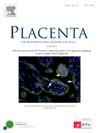妊娠期间成纤维细胞生长因子7通过JNK途径促进人滋养细胞的侵袭
IF 3
2区 医学
Q2 DEVELOPMENTAL BIOLOGY
引用次数: 0
摘要
本研究探讨高雌激素和孕激素水平下FGF7在滋养细胞侵袭中的作用,重点关注JNK信号通路。目的是证明FGF7通过激活JNK增强人滋养细胞的侵袭,这对建立妊娠至关重要。方法通过观察FGF7在人原代滋养层细胞中的表达,探讨雌激素和孕激素水平升高对滋养层细胞侵袭的影响。本研究重点关注FGF7在妊娠调节中的作用及其通过FGFR2激活JNK信号通路的机制。结果FGF7和FGFR2在正常妊娠期间在滋养细胞中表达,雌激素和黄体酮上调FGF7的表达。在滋养细胞中,FGF7激活MAPK/JNK信号通路,导致MMP-2和MMP-9表达上调,同时下调TIMP-1和TIMP-2表达,最终增强侵袭能力。然而,在复发性自然流产(RSA)的病例中,FGF7/FGFR2的表达水平明显下降。这些结果表明,FGF7/FGFR2的参与可能通过调节滋养细胞的侵袭性来维持正常妊娠,并且它们的表达受损可能导致RSA。本研究阐明了FGF7通过激活MAPK/JNK通路和上调MMPs在促进滋养细胞侵袭中的作用,从而为滋养细胞侵袭受损引起的复发性自然流产(RSA)提供了潜在的治疗见解。本文章由计算机程序翻译,如有差异,请以英文原文为准。

Fibroblast growth factor 7 facilitates invasion of human trophoblast cells through the JNK pathway during pregnancy
Introduction
This study investigates the role of FGF7 in trophoblast invasion under high estrogen and progesterone levels, focusing on the JNK signaling pathway. The aim is to demonstrate that FGF7 enhances human trophoblast cell invasion via JNK activation, crucial for establishing pregnancy.
Methods
We investigated the expression of FGF7 in primary human trophoblasts to evaluate the effects of elevated estrogen and progesterone levels on trophoblast invasion. The study focused on the role of FGF7 in gestational regulation and its mechanism of activating the JNK signaling pathway through FGFR2.
Results
The study unveiled that FGF7 and FGFR2 are expressed in trophoblast cells during normal pregnancies, with the expression of FGF7 being upregulated by estrogen and progesterone. In trophoblastic cells, FGF7 activates the MAPK/JNK signaling pathway, resulting in upregulation of MMP-2 and MMP-9 expression, concomitant downregulation of TIMP-1 and TIMP-2 expression, and ultimately enhanced invasive capacity. However, in cases of recurrent spontaneous abortion (RSA), the levels of FGF7/FGFR2 expression exhibited a notable decrease. These results indicate that the involvement of FGF7/FGFR2 could be significant in maintaining normal pregnancy by regulating trophoblast invasiveness, and their impaired expression could contribute to RSA.
Discussion
The present study elucidates the role of FGF7 in facilitating trophoblast invasion through activation of the MAPK/JNK pathway and upregulation of MMPs, thereby providing potential therapeutic insights for recurrent spontaneous abortion (RSA) attributed to impaired trophoblast invasion.
求助全文
通过发布文献求助,成功后即可免费获取论文全文。
去求助
来源期刊

Placenta
医学-发育生物学
CiteScore
6.30
自引率
10.50%
发文量
391
审稿时长
78 days
期刊介绍:
Placenta publishes high-quality original articles and invited topical reviews on all aspects of human and animal placentation, and the interactions between the mother, the placenta and fetal development. Topics covered include evolution, development, genetics and epigenetics, stem cells, metabolism, transport, immunology, pathology, pharmacology, cell and molecular biology, and developmental programming. The Editors welcome studies on implantation and the endometrium, comparative placentation, the uterine and umbilical circulations, the relationship between fetal and placental development, clinical aspects of altered placental development or function, the placental membranes, the influence of paternal factors on placental development or function, and the assessment of biomarkers of placental disorders.
 求助内容:
求助内容: 应助结果提醒方式:
应助结果提醒方式:


